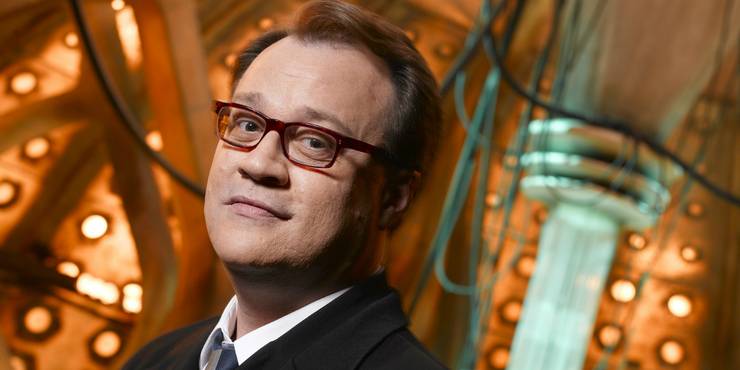The BBC Was Right Not To Cancel Doctor Who (Despite Its Problems)

The BBC was right not to cancel Doctor Who despite the many problems of its current era. Jodie Whittaker’s imminent departure from Doctor Who was something of an open secret for months before it was officially announced. The surprising news, though, was the revelation that current showrunner Chris Chibnall would depart alongside the star. It seems Chibnall and Whittaker were something of a package deal, both signed up for the same period. However, Doctor Who may have come a lot closer to being canceled after the end of the Whitaker and Chibnall era than anyone realized.
Speaking at the Gallifrey One fan convention, executive producer Matt Strevens revealed that he didn’t know whether Doctor Who would be renewed after season 13 and this year’s specials. The BBC ultimately chose to bring Russell T. Davies on board as Chibnall’s replacement, reaching a co-production deal with Bad Wolf Studios that has the potential of allowing the series to compete in the age of Disney+. Strevens only found out about this the day before it was officially announced; “My utter relief was, we didn’t break it, and Jodie gets to regenerate,” he concluded.
Strevens was reportedly quite self-deprecating, and it’s possible his fears and concerns were a little exaggerated. For all that’s the case, though, it’s worth noting this isn’t the first time the BBC has considered canceling Doctor Who at a major transition point; they almost canceled it at the end of the David Tennant era, but Russell T. Davies persuaded them to pass it on to Steven Moffat, who took over as showrunner for both the Matt Smith and Peter Capaldi eras, comprised of six full seasons and specials. That means Strevens’ comments shouldn’t be dismissed out-of-hand, but rather should be taken as an indication people involved with the show really did fear its future was in doubt.
Why The BBC Would Consider Canceling Doctor Who

The first problem is that the Chibnall era has hardly been an unqualified success. Production values have improved massively, but the writing has come under heavy criticism, with third acts often dependent on poorly-signposted twists. Jodie Whittaker’s Thirteenth Doctor has often been criticized for her lack of agency, while dependence on static infodumps meant episodes lost all sense of narrative momentum. Meanwhile, Chibnall has instituted complex retcons that sometimes seemed rather ill-fitting; his Timeless Child retcon changed everything and nothing, mattering only to people who cared about Doctor Who‘s lore, but initially lacking a character impact because the episode at the heart of it actually tried to reassure viewers it didn’t really matter.
Doctor Who fans have clearly felt uncertain about the show’s future, and there’s been intense debate online about the TV ratings, which have been in decline for quite some time. Speaking to Doctor Who Magazine, Strevens has insisted the ratings aren’t quite as bad as they look; “What’s fascinating to me is the way Doctor Who viewing figures are obsessed over, unlike many other shows on TV,” he observed. “Of course, you get the odd juggernaut, like [2021’s] Vigil, but by and large, five-odd million is really healthy for any drama on terrestrial. And on streaming services, they can only dream of figures like that. So I think our ratings are really respectable.” For all Stevens’ defense, though, the increased production costs required to make Doctor Who competitive mean those ratings feel particularly uncomfortable.
The divided reaction to the Chibnall era and the poor ratings certainly justify concerns at the BBC. But there have been consistent reports a bigger problem was the fact the BBC didn’t quite know what to do next, and struggled to hire a new showrunner with a vision for the future. Modern Doctor Who is very much showrunner-led, with Russell T. Davies, Steven Moffat and currently Chris Chibnall each giving eras with a distinctive shape and voice. Unfortunately nobody seemed willing to take over; as Chibnall himself observed in a press conference (via Den of Geek), “I’ve been throwing batons at people for about a year now.” Fortunately, someone did pick the baton up in the end; the BBC returned to Russell T. Davies, whose vision of Doctor Who seems to be greater than ever before.
The BBC Was Right Not To Cancel Doctor Who

The BBC has made the right decision to renew Doctor Who. The danger facing the BBC is that increased financial pressure will lead to the public service broadcaster’s decline, and in order to stave that off they really need to focus on ensuring their biggest brands remain strong and stable. The BBC has previously recognized Doctor Who as one of its superbrands, alongside the likes of Dancing With The Stars and Top Gear, because demand is international in scale and tie-ins and transmedia investments are incredibly profitable. It’s telling that Davies has already hinted at his vision for Doctor Who season 14 and beyond, and it seems to embrace the potential of tie-ins and transmedia to an unprecedented degree.
Regeneration is the key to Doctor Who‘s long-term future, because it means change is literally written into the show’s foundation. Every time the Doctor changes, the show can be reformatted and refreshed alongside its starring time traveler, and smart marketing can draw audiences in as though it’s a brand new series; this arguably happened in Jodie Whittaker’s debut episode, “The Woman Who Fell To Earth,” which reported phenomenal viewing figures even if later episodes sadly didn’t maintain that audience. Doctor Who‘s ability to regenerate means this TV series need never end, because it can always make itself new once again.
The decisions the BBC is making right now mean Doctor Who‘s future should be secure no matter what happens. Davies’ vision sounds bold enough to relaunch the show for years to come. His return is accompanied by a co-production deal with Bad Wolf Studios that is believed to involve a substantial degree of co-financing, making Doctor Who more affordable for the BBC at a time when their finances are under substantial political threat. The last few years may have been difficult for Doctor Who, but far from canceling it the BBC has safeguarded its future.
About The Author


















